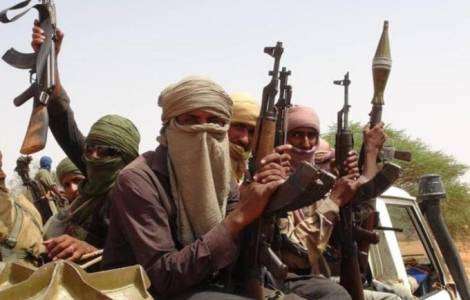A chilling new report released Wednesday by Human Rights Watch (HRW) exposes brutal atrocities committed by jihadist groups in Burkina Faso.
According to the watchdog, militant attacks are often acts of retaliation against communities accused of resisting recruitment or collaborating with government forces.
In a particularly grim attack in February, 12 people were killed during a church service in the northeastern village of Essakane. One survivor, who lost a family member, described the gruesome scene: “I saw a huge pool of blood and traces of blood all over the church, as well as bullet marks on the benches.”
The Islamic State in the Greater Sahara (ISGS) claimed responsibility for the massacre.
HRW’s report also points to the role of Jama’at Nusrat al-Islam wal-Muslimin (JNIM), an al-Qaeda affiliate, in several other violent incidents. A farmer from the Hauts-Bassins region recalled a devastating attack by JNIM militants in June.
“The jihadists opened fire in the village indiscriminately,” the 35-year-old witness said, adding, “We found bodies in the village, on the outskirts, and in the bush … Some were shot, others had their throats slit.”
Local Witnesses Describe Horrific Attacks
Another witness reported jihadists storming the town of Mansila shortly after an attack on a nearby army base. Going door-to-door, militants ordered people from their homes, executing those they accused of cooperating with the military.
Despite the focus on jihadist violence, the HRW report noted that atrocities are not one-sided. Burkina Faso’s military, alongside civilian groups allied with it, have also been implicated in killings during counter-insurgency operations.
In February, the Burkinabè army was accused of massacring over 200 civilians, according to an earlier HRW investigation.
The jihadist insurgency in Burkina Faso has caused widespread destruction, with entire regions now under militant control. Government forces hold sway over only about half the country.
Data from the Armed Conflict Location and Event Data Project (ACLED), referenced in HRW’s report, shows that more than 6,000 people have died in the first eight months of this year alone, with around 1,000 civilians among the dead.
These numbers do not even include the estimated 100 to 400 civilians killed in an August 24 massacre in Barsalogho, a northern town where JNIM claimed responsibility for the bloodshed.
Security experts warn that the scale of the Barsalogho massacre reflects deeper problems within Burkina Faso’s security forces. “The country is yet to come up with a security strategy that can defend not just the people, but also its territorial integrity,” said David Otto, an international defense and security analyst.
The country’s security forces are ill-prepared to handle the insurgents, as evidenced by comments from commanders within Burkina Faso’s military.
Ryan Cummings, an expert on the Islamic State in Africa, highlighted this critical gap: “We often hear reports by some commanders in the Burkina Faso military that they have less ammunition than what the insurgents have access to, and that’s a worrying development.”

In response to its ongoing security challenges, Burkina Faso has distanced itself from its former colonial ally, France, and pivoted towards Russia for military support. The government has also aligned itself with the pro-Russian juntas in Mali and Niger in hopes of tackling the insurgency collectively.
However, Otto said that the three juntas have yet to consolidate power effectively, complicating efforts to focus on the jihadist threat.
Cummings, meanwhile, argued that successive governments have failed to adequately professionalize Burkina Faso’s military, leaving the country’s forces without the proper training or resources to fend off increasingly sophisticated insurgents.
The jihadists, operating across the wider region, have also staged attacks in neighboring countries. In a recent incident, JNIM claimed responsibility for an assault on Mali’s capital, Bamako, targeting a military training school and the country’s main airport.
Amid escalating violence, Captain Ibrahim Traoré, who came to power through a coup two years ago, had pledged to improve security conditions within a matter of months. Instead, the situation has worsened, with insurgent groups continuing to wreak havoc across the West African nation.
READ ALSO: NDC Flagbearer To Kick Off 2-Day Campaign Tour In Ahafo




















